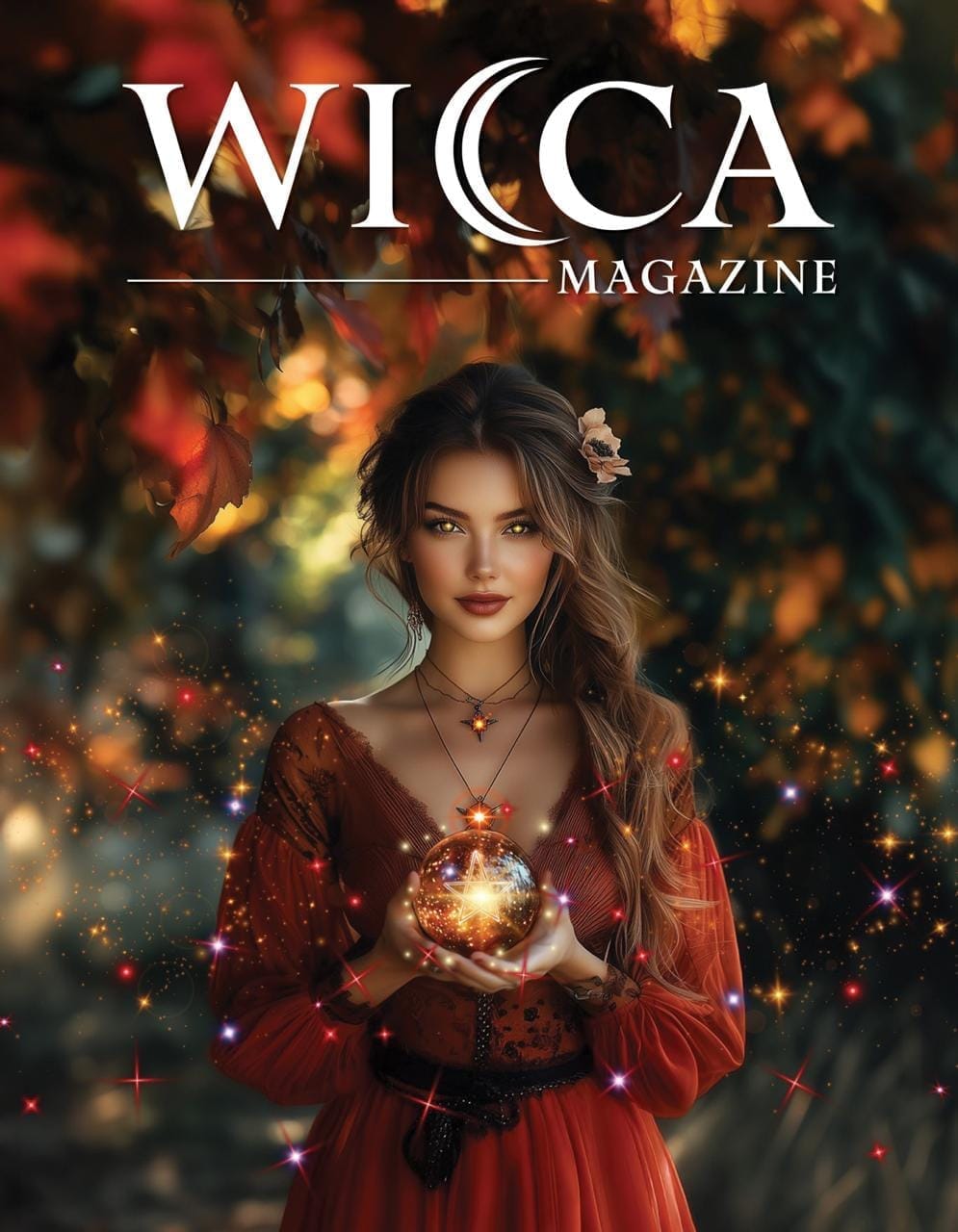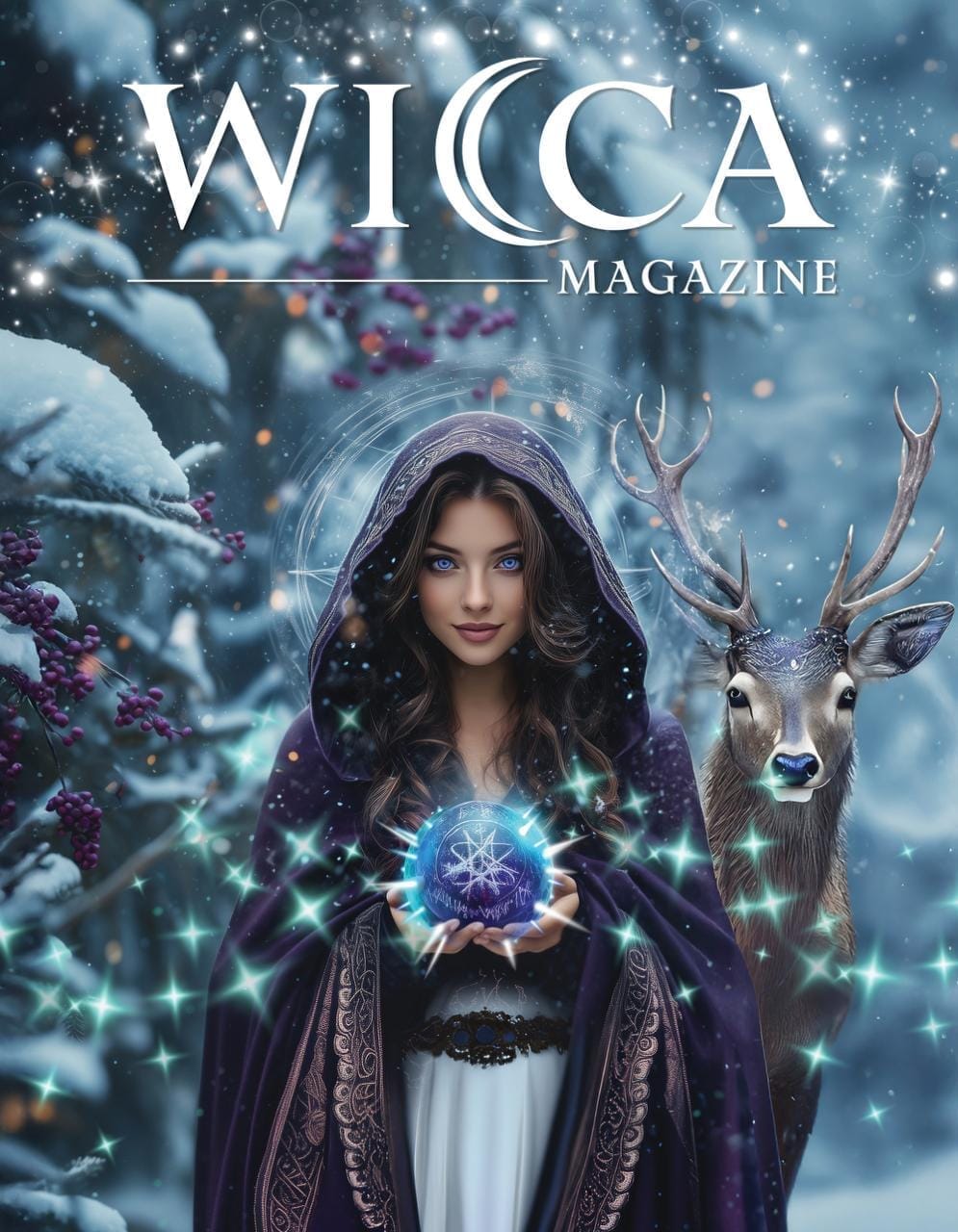


Unlock the Magick of Yule! - Your Wicca Magazine Issue Awaits
Step into the season of light with Wicca Magazine. Each digital issue is a sacred offering of spells, rituals, and Wiccan wisdom — honoring ancient paths and empowering your modern magick. Your craft, your journey, your magickal sanctuary.
Aleister Crowley
Aleister Crowley (1875–1947) was a highly controversial figure in the world of occultism and esoteric spirituality. He was a prolific writer, poet, and mystic who believed in the transformative power of magick and the importance of spiritual enlightenment.
Crowley's ideas and work have had a profound influence on modern Wicca and other forms of witchcraft, and his legacy continues to be debated and discussed among practitioners of esoteric spirituality today.
In this article, we will explore Crowley's early life, his influences, and his impact on modern Wicca in more detail, examining the key themes and ideas he developed throughout his life and how they have influenced the development of modern witchcraft.
Early Life
Aleister Crowley was born on October 12, 1875, in Leamington Spa, England. He was the only child of Edward Crowley and Emily Bertha Bishop, both of whom came from wealthy and influential families.
Crowley's father was a wealthy brewer and a member of the Plymouth Brethren, a strict Christian sect that emphasized the importance of personal morality and spiritual purity.
Crowley's childhood was marked by tragedy and turmoil. His father died when he was 11 years old, leaving him with a large inheritance but also a sense of loss and abandonment.
Crowley's mother was deeply religious and hoped that he would follow in his father's footsteps and become a minister, but Crowley rebelled against this idea and began to develop an interest in the occult and esoteric spirituality.
As a brilliant student, Crowley attended Trinity College at the University of Cambridge, where he studied English literature and developed an interest in poetry and mysticism.
He was a member of several secret societies and fraternities during his time at Cambridge, including the Hermetic Order of the Golden Dawn, which introduced him to the world of ceremonial magick and provided him with a framework for his spiritual beliefs.
However, Crowley's experiences with the Golden Dawn were not entirely positive. He clashed with some members of the group and eventually left to form his own organization, the A∴A∴, or Argentum Astrum.
The A∴A∴ was focused on the attainment of spiritual enlightenment through a system of magickal practices and rituals, with an emphasis on the use of the will to achieve one's goals.
Crowley would later describe this approach as "the method of science, the aim of religion."
After leaving Cambridge, Crowley traveled extensively throughout the world, visiting India, China, and Egypt and studying with various spiritual teachers and gurus.
He began to develop his own unique spiritual philosophy, which he called Thelema, and which emphasized the importance of individualism, personal empowerment, and the pursuit of spiritual enlightenment through the use of magick and ritual.
Crowley's early life was marked by a sense of rebellion and a rejection of traditional Christian values as he sought to explore the mysteries of the universe and unlock the secrets of the spiritual realm.
These early experiences would shape his later work and profoundly influence the development of modern Wicca and other forms of esoteric spirituality.
Inspirations and Influences
Crowley's work with the A∴A∴ and other esoteric groups and individuals would shape his ideas about magick and mysticism, which he would later expound upon in his writings.
His most famous work, The Book of the Law, was written in 1904 and dictated to him by a spiritual entity called Aiwass. The Book of the Law sets out Crowley's ideas about the nature of the universe, the purpose of human existence, and the role of magick in achieving spiritual enlightenment.
The influence that Crowley had on modern Wicca can be traced back to his involvement with the New Forest coven, a group of witches and occultists who met in the woods near his home in Southern England.
It was through his interactions with members of the coven, particularly the high priestess Dorothy Clutterbuck, that Crowley became interested in the idea of a witchcraft tradition that was based on ancient pagan beliefs and practices.
Crowley's ideas about magick and spirituality were also influential in the development of Gardnerian Wicca, the first organized form of modern Wicca.
Gardnerian Wicca was founded in the 1950s by Gerald Gardner, a British civil servant who had been involved in various occult groups and claimed to have been initiated into a secret witchcraft tradition.
Gardner drew heavily on Crowley's ideas about magick and mysticism, as well as his own experiences and research, to create a system of witchcraft based on ancient pagan beliefs and practices.
Trusting the Self
One of the key contributions that Crowley made to the development of modern Wicca was his emphasis on the use of magick as a means of achieving spiritual enlightenment.
In Crowley's system of magick, the practitioner uses various rituals and techniques to channel their willpower and connect with spiritual forces, with the ultimate goal of achieving union with the divine.
This emphasis on the transformative power of magick has been a hallmark of modern Wicca, with many practitioners using spells, rituals, and other magickal practices to connect with the natural world and achieve personal growth and transformation.
Another important aspect of Crowley's work that has influenced modern Wicca is his emphasis on the importance of personal empowerment and individualism.
Crowley believed that each individual had the potential to achieve spiritual enlightenment and that this could be gained through the use of their own willpower and inner strength.
This idea of personal empowerment has been a central tenet of modern Wicca, with many practitioners emphasizing the importance of self-discovery, self-expression, and personal responsibility in their spiritual practice.
Finally, Crowley's influence on modern Wicca can be seen in his emphasis on the importance of nature worship and the celebration of the seasons.
Crowley believed that the natural world was a source of divine inspiration and that the cycles of the seasons were a reflection of the divine order of the universe.
This idea has been central to modern Wicca, with many practitioners celebrating the changing seasons through rituals, festivals, and other forms of nature worship.
Dark Magick
Aleister Crowley is often associated with the practice of black magick, which has contributed to his reputation as a controversial and scandalous figure.
Crowley himself did not use the term "black magick," preferring instead to refer to his magickal practices as "the Great Work" or "the science and art of causing change to occur in conformity with will."
However, he did explore practices that were often considered taboo or controversial, including sex magick, drug use, and the invocation of entities or spirits.
Crowley's interest in black magick and taboo practices was rooted in his belief in the power of the individual will to transform reality.
He believed that magick could be used to achieve spiritual enlightenment and personal empowerment and that the use of taboo practices was a means of breaking down social and cultural barriers that prevented individuals from realizing their full potential.
Despite his interest in black magick and taboo practices, Crowley was also a vocal critic of unethical or harmful magickal practices.
He believed that magick should be used for positive purposes and that practitioners had a responsibility to act ethically and with compassion towards others.
Crowley's exploration of black magick and taboos has had a lasting impact on the development of modern witchcraft and esoteric spirituality.
Many practitioners of witchcraft and magick have been inspired by his ideas and work, while others have criticized his practices as dangerous or unethical.
Ultimately, Crowley's relationship with black magick remains a complex and controversial topic.
While his exploration of taboo practices has contributed to his reputation as a scandalous and provocative figure, his belief in the power of individual will, and his emphasis on personal empowerment and spiritual transformation have had a lasting impact on the world of esoteric spirituality and the development of modern witchcraft.
Controversial Legacy
While Crowley's influence on modern Wicca may be controversial and debated, there is no denying the impact that his work had on the development of the movement.
His ideas about the nature of the universe, the power of the will, and the importance of spiritual enlightenment continue to inspire and influence practitioners of witchcraft and other forms of esoteric spirituality to this day.
It is not a stretch to say that Wicca as we know it would not be the same without Crowley.
So, even if one finds his practices distasteful, there is no question that modern Wicca would not exist in its current form without him.
Most of the prominent witches who helped shape the movement were first inspired by Crowley due to the fact that his book was one of the first accessible printings on ceremonial magick available to a wider audience.
And so for that, we must tip our witch's hats to the enigmatic man that time will not soon forget.